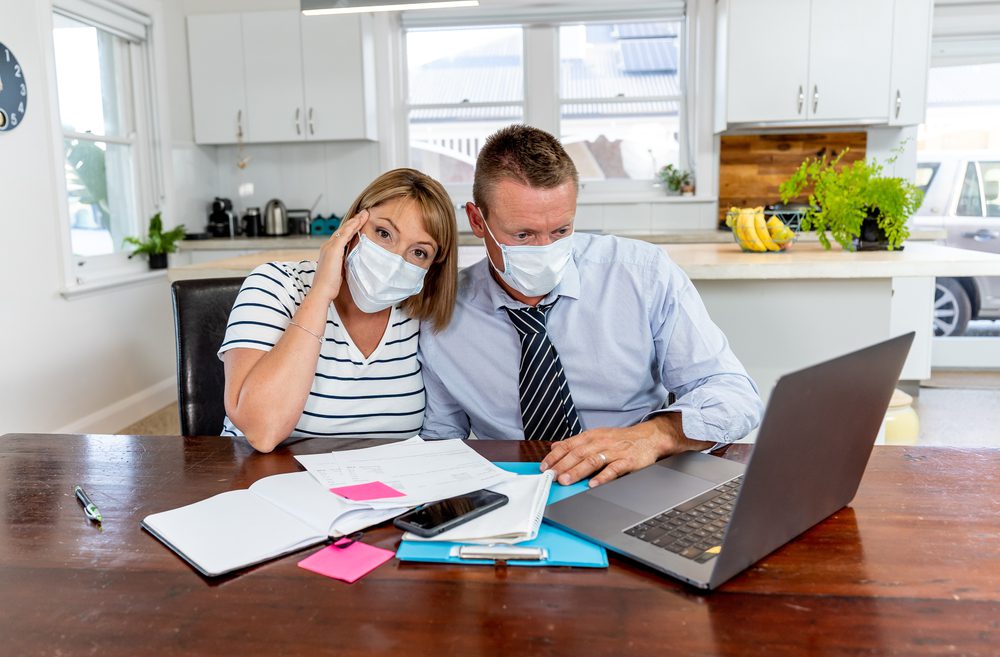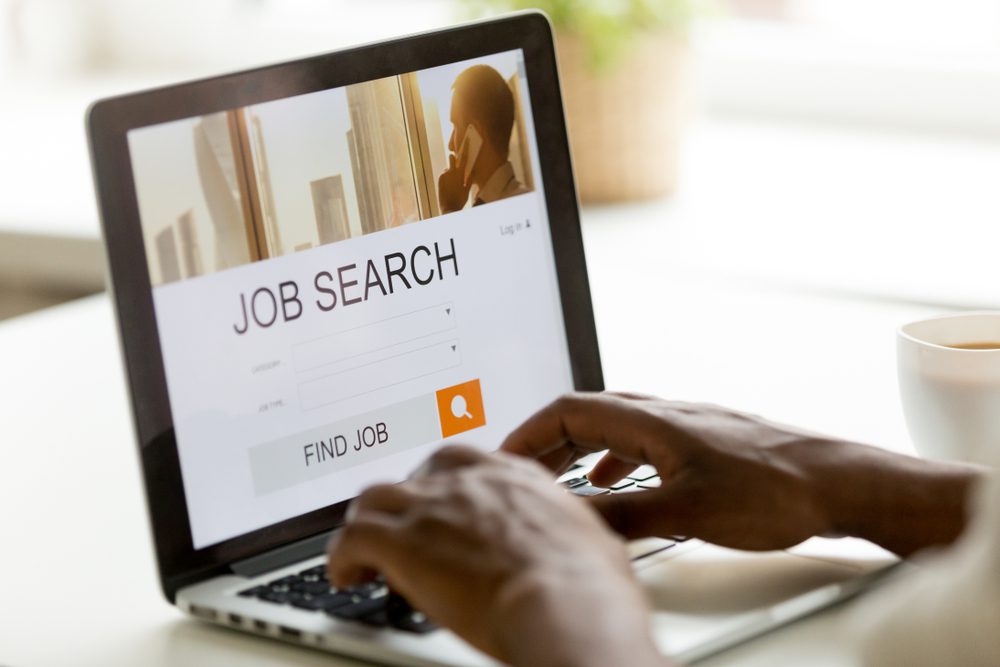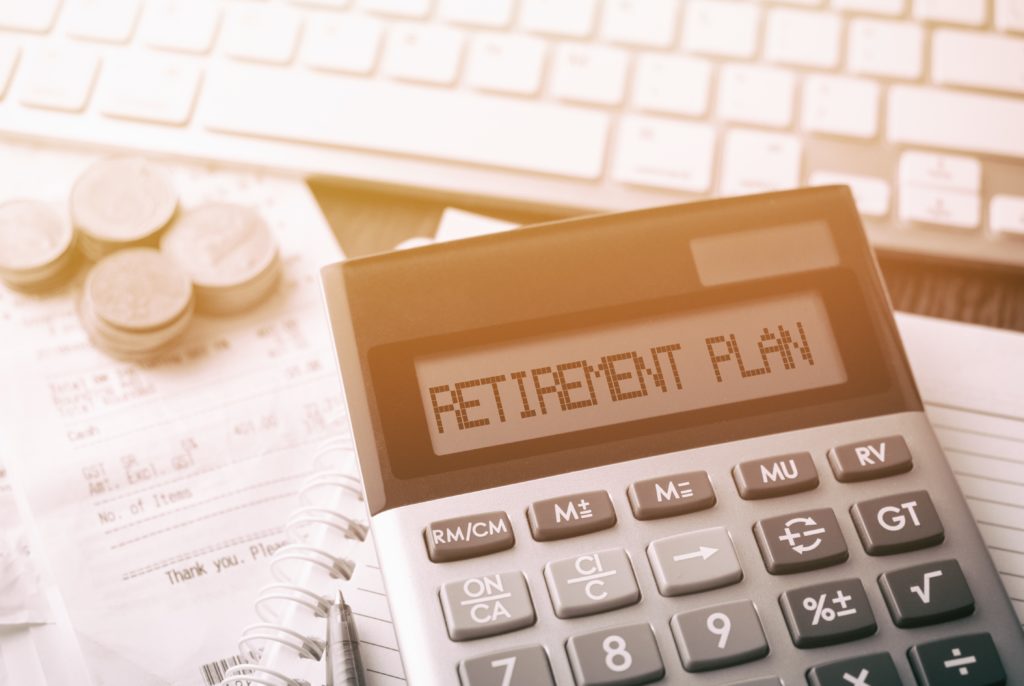
A second wave of coronavirus? Health experts and researchers say the world is still deep in the first, with many countries around the world seeing a large spike in new COVID-19 cases. This means we might have to wait a little bit longer before things go back to normal, assuming there is a “normal” that awaits us someday.
Some health experts warn that the outbreak is going to get worse and worse and that a second wave is inevitable as the fall flu season is just around the corner, schools reopened and cooler weather will make people retreat in indoor spaces. If the first lockdown took you by surprise, here are nine things you can do to safeguard your finances ahead of a possible second lockdown.
Continue saving
When the first wave of the coronavirus pandemic hit the United States, the first thing people were told to do, from the financial point of view, of course, was to put money aside for an emergency fund. And for once, people listened to that advice. According to statistics provided by the Bureau of Economic Analysis, the personal savings rate, namely the percentage of extra money people are saving from their overall income, rocketed to 33 percent, the highest it has ever been since 1959.
If you were among the lucky ones who managed to save money during the first lockdown, don’t stop. Keep saving. As long as your money is safely tucked away in a high-yield account, your savings will keep growing, increasing your financial comfort. On the other hand, if these past few months had you raiding your emergency savings or you found it impossible to put any money aside, it’s not too late to start, no matter how small the amount might be.

Boost your credit score
If your job would be on the line due to a second wave of coronavirus and another lockdown, you might have no other option than to get a personal loan. Unfortunately, if you don’t have a good credit score, you mind find it difficult to have your credit approved, get better terms and interest rates.
The most efficient way to maintain a good credit score is to verify it constantly. It’s actually quite easy to do it online, with the help of various companies that show you your credit score for free. More than that, you will be notified every time your score changes and can ask for support to improve your credit score in case the situation gets worse.
Pay off some debt
It may be hard to stay out of debt, especially during an economic crisis, but it’s not impossible. If not completely, there are also ways to partially get rid of credit card debt, which is just as good, especially when interest rates top 20 percent. If your interest on multiple cards keeps adding up, you will end up ruining your credit score losing control over your debt.
To make sure things don’t get out of hand, financial experts recommend paying off larger debts now, if your budget allows you to do so. Taking care of larger payments will also help lower your “credit utilization ratio” – how much of your credit card limit you use – and improve your overall credit score. With that number brought down, you can easily consolidate your debt by grouping your credit card balances together into a single loan with a lower interest rate.
Since we’re on the subject of credit cards and debts, check out 7 Times You Better Not Use a Debit Card for Payment.

Expand your job search
The coronavirus pandemic has triggered unprecedented mass job cuts and furloughs, with more than 20 million Americans losing their jobs in April alone. Sadly, further mass lay-offs should be expected if, or better said, when a second COVID-19 wave sweeps the country again. If your job’s at risk due to a second lockdown, or if you’re currently unemployed and searching for work, the best thing you can do is check for jobs on a regular basis.
Jobs are constantly being added on job search websites, so the more often you check, the more likely you are to find something. Don’t snub temporary or freelance work, or other types of jobs in other fields than the one you are currently in (or have been) for which you might also be qualified. Some websites offer useful information such as qualifications that recruiters look for and recommendations on jobs you never knew about that match your skillset.
Bonus tip: Don’t start searching for a job until you’ve updated your resume! Apart from sending it to potential employers, upload your CV on networking sites such as LinkedIn.
Find a side gig
Whether or not you are looking for a job, making some extra money is always a good idea. If you have a hobby or craft you want to tun into a profitable source of income, you should know there are plenty of online marketplaces to sell your talents and skills from graphic design and blogging to tutoring and life coaching.
The icing on the cake is that you can easily make more money without ever leaving your house. A side job usually requires a few hours a week and if it’s something you like doing, it won’t even feel like work. Not to mention that a side gig is also a good opportunity to expand your network and improve your resume, both of which could prove quite useful in your future search for a new job.
In addition, America has the fastest-growing side jobs economy in the world, according to the online platform Payoneer, so, if things go well, a side hustle can eventually be turned into a full-time business. In times of economic uncertainty, it could be your financial lifeline.
Related: 7 Weird But Genius Ways Anyone Can Make More Money

Make the most of online discounts
The first lockdown put retail stores out of operation and many brick and mortar retailers never reopened. People turned to e-commerce to purchase the items they could no longer buy in person. A second lockdown would close down stores all over again, meaning that we would have to do most of our shopping online again.
Online shopping does have its advantages. For one, you can safely browse dozens of stores and compare prices without wearing a mask or even get out of bed (!). Another perk is that you can receive and subsequently use all sorts of coupons and discount codes for your purchases, and save some time, energy and money in the process. Coupon apps such as Ibotta and Rakuten make it extremely easy to find, save, and use digital coupon codes. In addition, a free browser extension can help you compare prices on all your orders, including shipping, sales tax and availability.
Shopping online also has its downsides. To find out more, check out 7 Common Online Shopping Mistakes That Could Leave You Broke.
Don’t forget about health coverage
If you’ve been laid off during the initial lockdown, you probably lost your health insurance as well. If it’s any consolation, you’re not the only one. According to a report released by the consumer advocacy group Families USA in July, around 5.4 million people lost their health coverage because of the coronavirus pandemic. Health insurance might not be among your priorities right now, but if you or another family member needs medical services, the costs might be much higher than with a coverage.
Just to give you an idea, the average cost of health care in the U.S. was $11,172 in 2019. Buying a new policy now could save you thousands of dollars later. To make sure you find the best price, shop around, ask for quotes from insurance companies and compare prices. You can simplify this whole process with the help of certain websites, where you can compare rates for free and choose the coverage that fits your needs and budget.

Commit to your retirement plan
The first three months of 2020 were not that good for Americans’ nest eggs. According to a report issued by Fidelity Investments, the average 401(k) balance plummeted by almost 20 percent in the first quarter alone, even before mass layoff and furloughs hit the country’s economy. A second coronavirus wave and lockdown would force Americans with retirement savings accounts to tap even further into them.
“Americans have heightened concerns about their personal finances and job security,” Mark Hamrick, senior economic analyst and Washington bureau chief at Bankrate.com. If your nest egg has been affected by the coronavirus outbreak, you might need the help of a financial advisor to put your finances back on track. Depending on your financial goals and plans, a financial specialist can provide useful information on how to streamline your finances during an economic downturn. More than that, hiring such an expert is not as expensive as you might think and, the best part is that even if there will be a second lockdown, you can stay still stay connected and receive valuable advice and insight via email or video calls.
Reassess your spending habits
One of the most important things you could do to make a big difference in your financial situation is to track your spending. Once you have all your expenses laid out, it will be easier for you to identify the non-essential items you could live without and eliminate during another lockdown. Will you need another gym membership? Multiple streaming services? Is a brand-name product that much better than a generic one? Speaking of which, watch out for these 13 Things You Shouldn’t Purchase During a Recession.
Another way to boost your savings and prepare for a second coronavirus wave is to shop at various stores in your neighborhood. You might be used to going to a certain store that’s closer to your house or on your way back from work, but your usual go-to store might not have the best prices in the neighborhood. Apply the same principle when it comes to recurring or automatic expenses like home or life insurance. Look at how much you’re paying and compare prices from other insurers to see if you can find a better arrangement.























